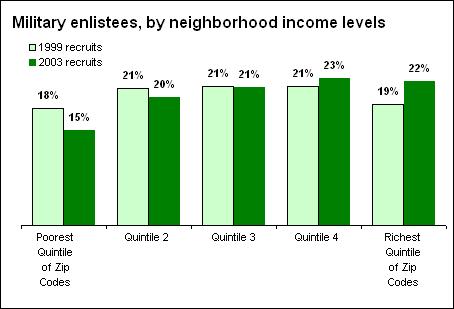Edward Glaeser on Urban Economics
Check out this very nice NY Times article (I think it is outside the firewall) on Harvard economist Edward Glaeser and his takes on urban economics and housing markets. One study of his that resonates with me is his research about just how much modern regulation and zoning is contributing to the high cost of housing:
Glaeser and several colleagues considered two explanations. First, the
possibility that builders in the metro area were running out of land and that
home prices reflected that scarcity. The second hypothesis was that building
permits were scarce, not land. Had the 187 townships in the metro area created a
web of regulations that hindered building to such a degree that demand far
outstripped supply, driving prices up?Almost as a rule, Glaeser is skeptical of the lack-of-land argument. He has
previously noted (with a collaborator, Matthew Kahn) that 95 percent of the
United States remains undeveloped and that if every American were given a house
on a quarter acre, so that every family of four had a full acre, that
distribution would not use up half the land in Texas. Most of Boston's metro
area, he concluded, wasn't particularly dense, and even in places where it was,
like the centers of Boston and Cambridge, there was ample opportunity to
construct higher buildings with more housing units.So, after sorting through a mountain of data, Glaeser decided that the
housing crisis was man-made. The region's zoning regulations "” which were
enacted by locales in the first half of the 20th century to separate residential
land from commercial and industrial land and which generally promoted the
orderly growth of suburbs "” had become so various and complex in the second half
of the 20th century that they were limiting growth. Land-use rules of the 1920's
were meant to assure homeowners that their neighbors wouldn't raise hogs in
their backyards, throw up a shack on a sliver of land nearby or build a factory
next door, but the zoning rules of the 1970's and 1980's were different in
nature and effect. Regulations in Glaeser's new hometown of Weston, for
instance, made extremely large lot sizes mandatory in some neighborhoods and
placed high environmental hurdles (some reasonable, others not, in Glaeser's
view) in front of developers. Other towns passed ordinances governing sidewalks,
street widths, the shape of lots, septic lines and so on "” all with the result,
in Glaeser's analysis, of curtailing the supply of housing. The same phenomenon,
he says, has inflated prices in metro areas all along the East and West Coasts.
One of his other areas of research was new to me. Glaeser argues that the long-lived nature of housing is part of what keeps cities like Detroit and St. Louis around long after the economic and demographic logic would have had them die.
Glaeser and Gyourko determined that the durable nature of housing itself
explains this phenomenon. People can flee, but houses can take a century or more
to finally fall to pieces. "These places still exist," Glaeser says of Detroit
and St. Louis, "because the housing is permanent. And if you want to understand
why they're poor, it's actually also in part because the housing is permanent."
For Glaeser, this is the story not only of these two places but also of Buffalo,
Baltimore, Cleveland, Philadelphia and Pittsburgh "” the powerhouse cities of
America in 1950 that consistently and inexorably lost population over the next
50 years. It is not just that there were poor people and the jobs left and the
poor people were stuck there. "Thousands of poor come to Detroit each year and
live in places that are cheaper than any other place to live in part because
they've got durable housing still around," Glaeser says. The net population of
Detroit usually decreases each year, in other words, but the city still attracts
plenty of people drawn by its extreme affordability. As Gyourko points out, in
the year 2000 the median house price in Philadelphia was $59,700; in Detroit, it
was $63,600. Those prices are well below the actual construction costs of the
homes. "To build them new, it would cost at least $80,000," Gyourko says, "so
there's no builder who would build those today. And as long as those houses
remain, the people remain."
There's a lot more in the article, including a positive economic take on the role of roads and automobiles that he sets in counterpoint to the typical aesthetic arguments against sprawl.
I found this next bit supremely ironic, though it matches my observations of these cities as well:
Zoning and housing supply ultimately determine not only who lives in a city but
also the very nature of these places. Boston, San Francisco and Manhattan are
obviously becoming rarefied destinations, mostly for America's elites (Glaeser
calls the cities "luxury goods"), with housing floating beyond the reach of the
young and the middle class. These cities' economies are in the process of
becoming boutique, too, accommodating only the most skilled and privileged.
Their desire to limit construction and grow not in buildings and population but
in prices has, in effect, begun to shape their destiny.
Residents of these cities turn up their noses at the aesthetics and red-state politics of places like Houston and Phoenix, piously believing that all the while they are the true friends of the poor, while at the same time putting in place a government-enforced housing system that only the rich can afford, driving those of moderate incomes to, well, Houston and Phoenix.
This last observation provides a fitting conclusion:
And what surprises him is that the changes in how we have treated property
rights for the last 40 years "” who gets permission to build, the size and
location of what owners are permitted to build "” have been the subject of
virtually no national dialogue, even as the effects on prices, in his view, have
been extraordinary.

